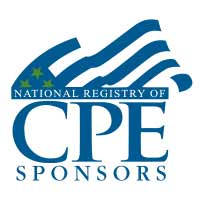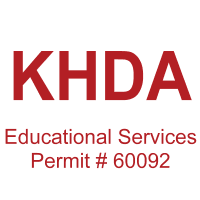
An Intensive 5-day Training Course
ASME PCC-1 Training
Pressure Boundary Bolted Flange Joint Assembly
- Format: Classroom
- Duration: 5 days
- Language: English
- Accredited: CPE, KHDA Certified training courses
INTRODUCTION
This EuroMaTech ASME PCC-1 training course is designed to train and evaluate a bolter’s ability to inspect, assemble, disassemble and tighten bolted joints in an effective and safe manner.
Candidates will understand and demonstrate the principles and practices of safe bolted joint assembly as outlined in Appendix A of ASME PCC-1 Training: Guidelines for Pressure Boundary Bolted Flange Joint Assembly. Successful candidates will show their ability to apply these practices in the assembly of bolted joints safely and effectively.
This course trains and tests bolting personnel at the supervisory level on the technological and practical problems of assembling bolted joints in large scale industrial applications.
TRAINING OBJECTIVES
This EuroMaTech ASME PCC-1 training course aims to enable participants to achieve the following objectives:
- Describe the principles of joint design and reliability
- Explain the “nuts and bolts” of nuts and bolts
- Explain the concept of “load” as a bolting goal
- Identify factors affecting proper “load” and how to compensate for problems
- Identify the proper selection and installation of gaskets
- Identify familiar with bolting tools of all types
- Describe the advantages and disadvantages of various bolting methods and where to use them
- Identify assembly procedures (bolting patterns, incremental tightening, etc.)
- Explain work planning and preparation (tools, hardware, bolting plan, safety checklists)
WHO SHOULD ATTEND?
Practicing design and manufacturing professionals involved in assembly of electro-mechanical hardware components and engineers and technicians in design and assembly operations. Engineers involved in the design, construction or maintenance of pressurized equipment utilizing flanged joints for the petroleum, refining, chemical, power, and process industries.
Anyone involved in the assembly, disassembly or quality assurance of bolted joints.

TRAINING METHODOLOGY
This EuroMaTech ASME PCC-1 (Pressure Boundary Bolted Flange Joint Assembly) training course will be conducted along workshop principles with formal lectures, videos, and interactive worked examples. Each learning point will be re-enforced with practical exercises and ample opportunities for discussion and sharing of experiences.
The course instructor may modify the above training methodology before or during the course for technical reasons with no prior notice to participants The classroom training consists of 5 days of training.
TRAINING OUTLINE
Day 1 - Bolted Joints and Gasket Behavior
- Explain the scope of the ASME PCC1
- Why Training And Qualification Of Bolted Joint Assembly Personnel Appendix A
- Introduction to the Bolted Joint
- Basic Concepts & Mechanics of Bolted Joints
- Materials
- Stiffness and Strain Considerations
- Stress and Strength Considerations
- Types of Strength
- The Bolt in Tension
- The Strength of a Bolt
- The Strength of the Joint
- PCC1 Recommended Gasket Seating Surface Finish
- PCC1 Guidelines For Allowable Gasket Seating Surface Flatness And Defect Depth
Day 2 - Tightening the Joint: Getting the Clamping Force
- Introduction to Assembly
- Initial vs. Residual Preload
- Starting the Assembly Process
- Bolt Preload vs. Clamping Force
- Short-Term Relaxation of Individual Bolts
- Torque Control of Bolt Preload
- Ultrasonic Measurement of Stretch or Tension
- Bolted Joint Calculation Methods (an overview)
- Casketed Joints
- Non-Casketed Joints
- In-Service Behaviour of a Joint
- Joint Under Tensile Loads
- Bolted Joints Loaded in Axial Shear
- Factors Which Affect Clamping Force in Shear Joints
- Joints Loaded in Both Shear and Tension
- ASME PCC-1
- Flange Joint Alignment Guidelines
- Joint-Tightening Practices And Patterns
Day 3 - Design of Bolted Flange Joints
- Codes Addressing Flange Design
- Discuss how various Code sections address design of flange Joints and applicability of flange standards
- Vessels: ASME Section VIII, Piping: ASME B31.3, B31.1, B31.4, And B31.8
- Flange Standards
- Discuss the ASME flange standards, their basis, applicability and how they are used within the structure of the ASME Codes and Standards
- ASME B16.5
- ASME B16.47 (API, MSS)
- ASME PCC-1
- Bolt Root And Tensile Stress Areas
- Nut Factor Calculation Of Target Torque
- Guidance for usage And Purchase Washer
Day 4 - Flange Joint Analysis ASME PCC1
- Flange Joint Analysis
- Methods of flange joint analysis, interaction between the flanges, bolts, and gasket
- Examples: troubleshooting field problems
- Mechanical properties of bolts tightening methods
- Principles of bolting
- The “nuts and bolts”
- Principles of joint design and reliability – flanges, fasteners and gaskets
- The concept of “load” as a bolting goal
- Factors affecting proper “load” and how to compensate for problems
- Ways to accomplish “load” (torqueing and tensioning)
- Principles of torque tightening
- Principles of tensioning (methods and tools)
- Examination Of Flange And Fastener ASME PCC1
- Examination Gasket Seating Surfaces For Surface Finish and Flatness
- Examination of Fastener Contact Surfaces and Washers
- Examination of Flange Nut or Washer Bearing Surfaces
- Installation Of Gasket & Bolts
- Joint Disassembly
Day 5 - Work planning and preparation
- Work planning and preparation (tools, hardware, bolting plan, safety checklists)
- Set up and familiarity with tools – safety in the shop
- Bolting sequence, patterns and interaction
- Multiple point torqueing/tensioning
- Mechanical Failure of Bolts
- Lost Bolts
- Loose Bolts
- Bolts Too Tight
- Which Failure Modes Must We Worry About?
- The Importance of Correct Preload
- Failure of Joint Members
- Galling
- Self-Loosening
- How Does a Nut Self-Loosen?
- Fatigue Failure
- What Determines Fatigue Life
- Minimizing Fatigue Problems Corrosion
- Corrosion
- The Corrosion Mechanism
- Hydrogen Embrittlement
- Stress Corrosion Cracking
- Minimizing Corrosion Problems
- Fastener Coatings
- Casketed Joints and Leaks
- Why Does a Joint Leak?
- Mechanical Behaviour of a Gasket
- Mechanical Behaviour at Elevated Temperature
- Leakage Behaviour of a Gasket
- Testing and Evaluating Gaskets
- Gasket Quality Factors
- Selecting a Gasket
- Selecting Assembly Stress for a Gasket
- Suggestions for the Field
- A Case History
CALL ME BACK
Do you wish for us to conduct this course at your premises?
Discover In-House Solutions
ACCREDITATION

EuroMaTech is registered with the National Association of State Boards of Accountancy (NASBA) as a sponsor of continuing professional education on the National Registry of CPE Sponsors. State boards of accountancy have final authority on the acceptance of individual courses for CPE credit.

Euromatech is a Knowledge & Human Development Authority (KHDA) approved training institute in Dubai, licensed and approved to deliver training courses in the UAE.
The KHDA is the regulatory authority in the UAE, that oversees administering, approving, supervising, and controlling the activities of various education providers in the UAE. We are proud of our commitment to ensuring quality training courses and status as a KHDA-approved training provider.
Taught by our team of highly qualified trainers, our KHDA approved training courses will provide you with an enriching learning experience and practical knowledge that will help you future-proof your career and support professional development within your organisation.

